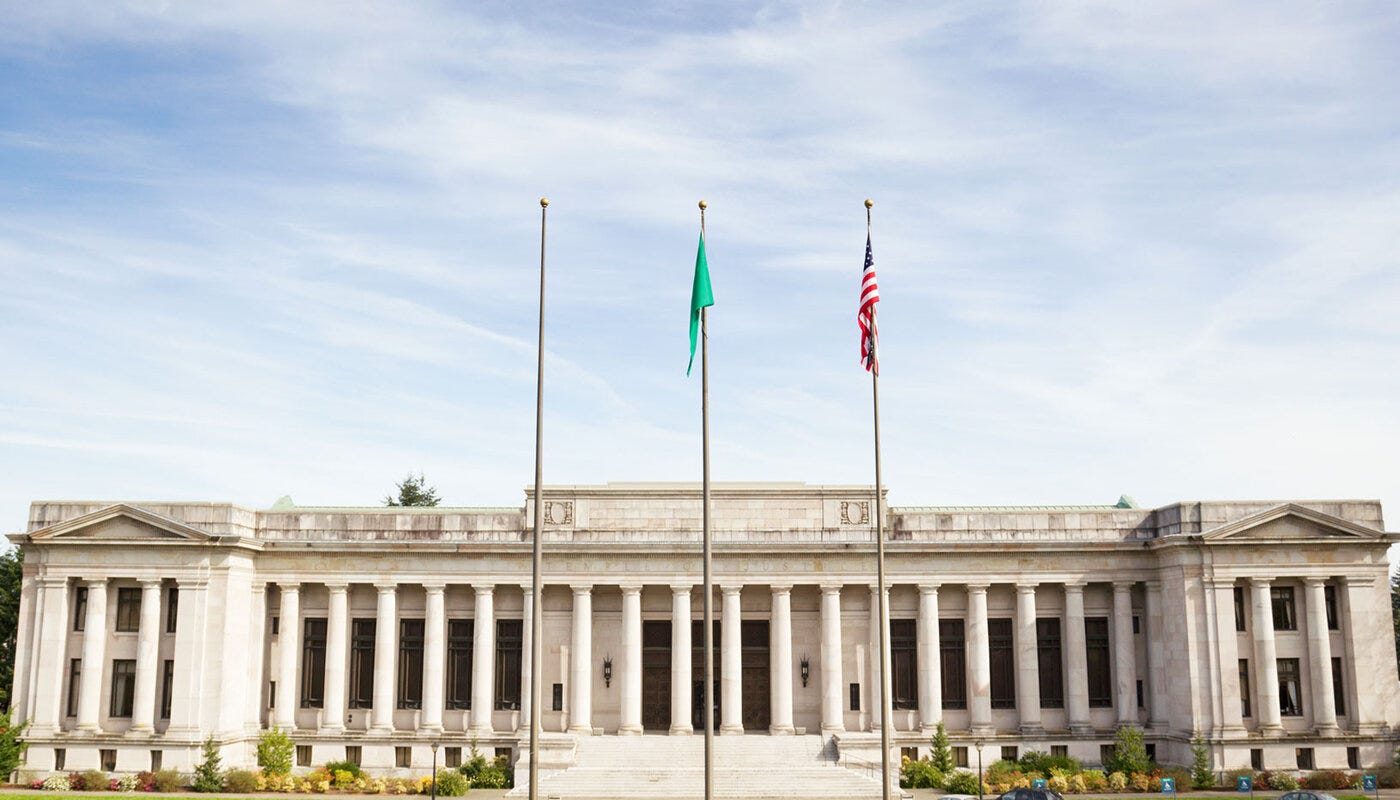A large body of research suggests that peremptory challenges — which allow either side in a trial to exclude potential jurors without explanation — open the door to racial discrimination in jury selection. In 2005, Justice Stephen Breyer called on the Supreme Court to reconsider the use of peremptory challenges, or at least to reform the test it had established in Batson v. Kentucky. That case requires an objecting party to first produce evidence that a peremptory challenge had a discriminatory purpose, at which point the other side must provide an adequate race-neutral explanation for the court to weigh. Breyer cited “studies and anecdotal reports suggesting that, despite Batson, the discriminatory use of peremptory challenges remains a problem.”
The Supreme Court hasn’t taken up Breyer’s call to action, but in recent years, several states have either changed their procedural rules or established new precedents to more rigorously police discriminatory jury selection. Since 2018, Connecticut, New Jersey, and Washington all introduced court rules that altered the Batson framework, and California adopted similar changes legislatively. In Arizona, the state supreme court recently eliminated peremptory challenges altogether.
Washington has been a groundbreaker in addressing discriminatory jury selection. Its recent decision in In the Matter of the Personal Restraint of Theodore R. Rhone — in which the court unanimously ordered a new trial in a nearly 20-year-old case based on discriminatory use of peremptory challenges — highlights some of the steps the court has taken to address racial bias in the justice system.
In 2005, Rhone was tried on first-degree robbery and other charges. His 41-person jury pool had 2 Black members. After both sides agreed to remove a Black member of the pool for cause, the prosecution struck the remaining Black member using a peremptory challenge. After the court swore in the jury, Rhone made a statement: “I don’t mean to be facetious or disrespectful or a burden to the Court. However, I do want a jury of my peers. And I notice that [the prosecutor] took away the [B]lack, African-American, man off the jury. . . . I would like to have someone that represents my culture as well as your culture. To have this the way it is . . . seems unfair to me.”
The trial judge applied the Batson standard and found there was no prima facie case of discrimination — in other words, Rhone hadn’t provided enough evidence of discrimination to make an initial case and require the prosecution to give an explanation for the strike. On appeal, Rhone argued that there should be a bright-line rule that a defendant establishes a prima facie case whenever a prosecutor peremptorily challenges the only remaining member of a racial group in a jury pool. In 2010, a divided Washington Supreme Court denied his claim.
Fast forward to 2017. In City of Seattle v. Erickson, the Washington Supreme Court reversed course, modifying Batson to largely adopt the bright-line rule that Rhone had proposed. In 2018, it went even further, adopting a new court rule that modified the questions a judge must consider after a prima facie case has been has been made. The rule requires a judge to deny a peremptory challenge if an objective observer, aware of “implicit, institutional, and unconscious biases,” could view race or ethnicity as a factor in the challenge. The rule does not require purposeful discrimination and identifies presumptively invalid reasons that have historically been associated with discriminatory jury selection, including prior contact with law enforcement, expressing distrust of law enforcement, and living in a high-crime neighborhood.
This month, the court returned to Rhone’s case. The court didn’t make its Batson precedents retroactive, but it did conclude that justice required allowing Rhone “to benefit from the rule he proposed that ultimately became the law in this state.”
The court characterized its 2010 ruling as lacking “the benefit of the considerable knowledge we have gained regarding the impact of implicit bias in jury selection.” And a lot has changed in Washington since 2010. That same year, two justices (neither still on the court) drew controversy when they argued that discrimination is not a significant driver of racial disparities in the justice system, including comments by one justice that “certain minority groups” have “a crime problem.” Since then, changes in the court’s membership, coupled with research, working groups, task forces, and engagement with stakeholders, have prompted revisions in Washington’s court rules and new judicial precedents that grapple directly with implicit biases and discriminatory practices in our justice system.
I recently had the opportunity to interview Washington’s chief justice, Steven C. González, for State Court Report. He talked about the court’s Batson rule, which he described as “a sea change in the way we address implicit bias and bias in our system.” I was struck by his description of the work still to be done: “Thinking through those kinds of issues takes bravery, courage, dedication, and a great deal of patience.”
IMAGE: powerofforever/Getty
Scholarship Roundup: What’s New in State Public Law
In a new periodic feature for State Court Report, University of Wisconsin professor Miriam Seifter gives a roundup of scholarship related to state courts, state constitutions, and the broader field of state public law. She writes, “The states offer much to study, because state public law is not just junior varsity federal public law. States’ constitutions and institutions offer rich distinctions that warrant focused consideration.” READ MORE
Previewing Montana’s Climate Trial
The nation’s first constitutional climate trial is scheduled to begin on June 12 in Helena, Montana. Michael Burger, executive director of the Sabin Center for Climate Change Law at Columbia University, previews the case, which was brought under the state constitution’s right to a clean and healthful environment. The case will be a pivotal test of using state constitutions to curb state actions that contribute to the climate crisis. READ MORE
North Carolina’s Judicial Whiplash on Gerrymandering
In Harper v. Hall, the North Carolina Supreme Court, with a newly elected conservative majority, reversed itself and concluded that the state constitution does not prohibit partisan gerrymandering. Professor Marcus Gadson from Campbell University School of Law analyzes the ruling, including how to approach constitutional interpretation when a state has had multiple constitutions. “Did the North Carolina voters who ratified the 1971 constitution really understand the free elections clause to mean the same thing it did in 1776?” he asks. “There is reason to think not.” READ MORE
Montana Supreme Court Expands Abortion Access
This month, the Montana Supreme Court unanimously struck down a 2005 state law that barred advanced practice registered nurses from performing abortions. The Brennan Center’s Gabriella Sanchez gives a rundown of the ruling, which reaffirms existing precedent and holds that the 2005 law violates Montanans’ right to privacy to seek abortion care from a qualified health provider of their choosing. READ MORE
New Data Details Lack of Diversity on State Supreme Courts
A new Brennan Center analysis finds that many state supreme courts fail to reflect the diversity of the communities they serve. In 18 states, for example, no justices identify as a person of color, including in 12 states where people of color make up at least 20 percent of the population. Amanda Powers of the Brennan Center details the findings and discusses some of the factors that contribute to a lack of judicial diversity, including a state’s method of judicial selection. READ MORE
What Else We’re Reading
The National Center for State Courts analyzed the most common topics covered in State of the Judiciary addresses from chief justices across the country so far this year.
Notable Cases
Wisconsin Justice Initiative, Inc. v. Wisconsin Elections Commission, Wisconsin Supreme Court
Upheld the adoption of a constitutional amendment adding “Marsy’s Law” victims’ rights provisions, rejecting claims that the ballot language was misleading because it failed to mention the amendment’s impact on the rights of the accused. Read more from the State Democracy Research Initiative, as well as Walter Olson’s earlier analysis of this and other Marsy’s Law challenges in State Court Report.
Commonwealth v. Robinson-Van Rader, Massachusetts Supreme Judicial Court
Held that the “less-stringent” standard for establishing equal protection violations that the court previously adopted for traffic stops also applies to other police investigations such as pedestrian stops. Read more in the Boston Globe.
Saunders v. Randolph, Chancery Court of Hinds County, Mississippi
Dismissed lawsuit challenging H.B. 1020, a law that allows the chief justice to appoint judges to a new court in Jackson, finding that the plaintiffs did not establish that the legislation violated state constitutional provisions governing judicial selection and the establishment of courts. Plaintiffs have filed a notice of appeal to the Mississippi Supreme Court. Read more in WAPT.





